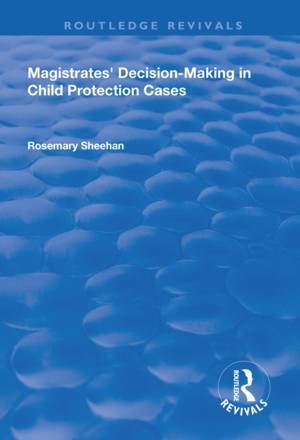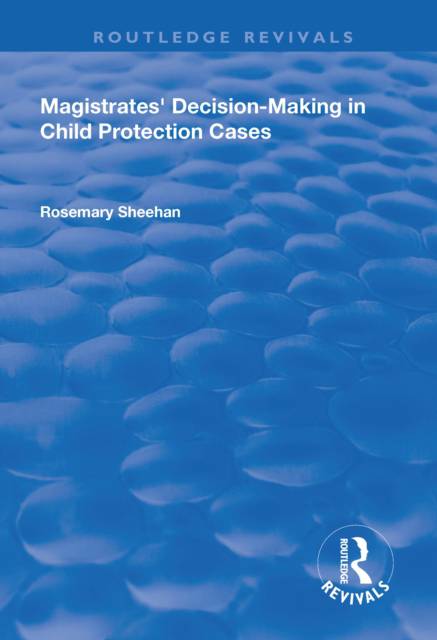
- Retrait gratuit dans votre magasin Club
- 7.000.000 titres dans notre catalogue
- Payer en toute sécurité
- Toujours un magasin près de chez vous
- Retrait gratuit dans votre magasin Club
- 7.000.0000 titres dans notre catalogue
- Payer en toute sécurité
- Toujours un magasin près de chez vous
Description
This title was first published in 2001. Making decisions about the care and protection of children who appear before the courts is complex. Attention must be paid to the best interests of the child, the child's need for their family, community views on parenting, and concern about welfare intrusion into family life. Magistrates have a unique authority to make, or reject child protection orders - yet the criteria they use to decide a protection order, how they understand the information presented to them in court and the factors that influence their discretion and decision-making have, until now, been little known. Presenting the findings of a study undertaken at Melbourne Children's Court, this book offers a much-needed investigation of how magistrates actually make child protection decisions. Case examples highlight this decision-making and the book thus offers practical assistance to professionals working with children in the legal process.
Spécifications
Parties prenantes
- Auteur(s) :
- Editeur:
Contenu
- Nombre de pages :
- 268
- Langue:
- Anglais
- Collection :
Caractéristiques
- EAN:
- 9781138706682
- Date de parution :
- 31-10-19
- Format:
- Livre broché
- Format numérique:
- Trade paperback (VS)
- Dimensions :
- 152 mm x 219 mm
- Poids :
- 494 g

Les avis
Nous publions uniquement les avis qui respectent les conditions requises. Consultez nos conditions pour les avis.






